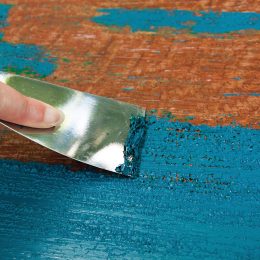
The Fourth of July traditionally kicks off the height of summer travel season. For most American families, that means hitting the road. How fast the nation stretches and gets back on its feet after the pandemic hibernation is anyone’s guess. But whether you’re planning to shake off cabin fever now and cannonball into the travel waters, or slowly dip your big toe first and wade in, here are some tips on what to check and inspect from the AAA Hoosier Motor Club, Firestone Complete Auto Care and CarWise.com to make sure your vehicle is road ready when you and your family are willing and able.
Oil and filter. If you’re close to your scheduled oil change, go ahead and have it done before the trip. The oil is the lifeblood of your engine. If it breaks down, your engine breaks down. If a change is not necessary, make sure you check the oil level and keep it properly filled.
Engine fluids. Double-check levels on low transmission fluid, power steering fluid, coolant, and even windshield wiper fluid. Coolant, in particular, is critical. The greatest cause of summer breakdowns is overheating. Check your coolant’s level and appearance in the overflow reservoir. It should be clear and not cloudy. If your coolant hasn’t been changed for over five years or 100,000 miles, a flush-and-fill is probably a good idea. CAUTION! Never remove the radiator cap when the engine is hot — boiling coolant under pressure could cause serious burns.
Battery. Summer heat can damage your car’s battery more than freezing winter temperatures. If a battery is more than three years old, it’s a good idea to have it tested by a trained technician to determine how much longer it will last.
Alignment. If your car pulls to one side, your steering wheel vibrates, or your steering wheel isn’t centered when you’re driving straight, get your vehicle’s alignment checked out.
Brakes. Is there anything more important than good brakes in your vehicle? Stop-and-go traffic, road construction, and inclement conditions may have done a number on your brakes.
Tire pressure. Make sure your tires (including your spare!) are properly inflated before hitting the road. Driving on under-inflated tires can cause tires to overheat and increase the likelihood of a blowout, especially when road temperatures are extremely high. For the most accurate reading, check tire pressures when the tires are cold. Always follow inflation pressure recommendations in your vehicle owner’s manual or on the tire information label located in the glove box or on the driver’s door jamb. Do not use the inflation pressure molded into the tire sidewall, which may not be the correct pressure for your particular vehicle.
Air conditioner. Run your air conditioner for a little while before your trip to make sure it blows out cold air. Are there any strange noises or odors? If you notice anything unusual, the system may need to be cleaned or recharged, or it could have a leak. During extreme summer heat, an air-conditioning system can be more than just a pleasant convenience: It can reduce fatigue, which plays an important part in driver alertness and vehicle safety.
Belts, clamps and hoses. Visually inspect your engine’s drive belts, clamps and hoses. If anything looks worn or frayed, take it to a mechanic and have them checked out
Lights. Inspect all lights and replace burned out bulbs.
Windshield wipers. If your current blades are leaving streaks behind when it rains or turn the cloud of gnats you just hit into a blinding smear, it’s time for a new pair. Top off your wiper fluid while you’re changing the blades.
Emergency kit. Even with preventive maintenance, summer breakdowns can still occur. Keep a well-stocked emergency kit in your car that includes water, non-perishable food items, jumper cables, a flashlight with extra batteries, road flares or an emergency beacon, basic hand tools and a first aid kit.
If you are unable or uncomfortable checking many of these items on your own, plan to have your car checked over by a professional mechanic at least several days before your planned departure.



